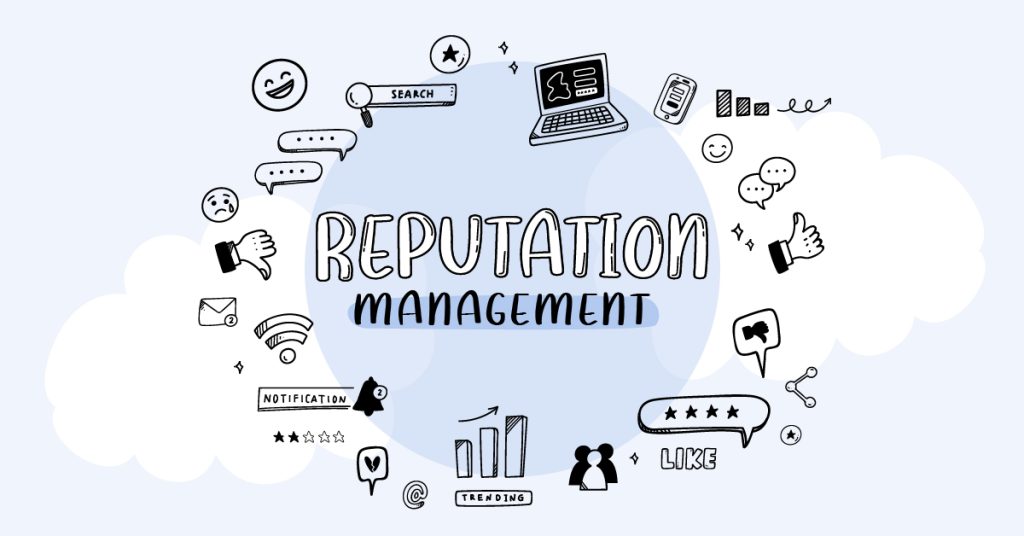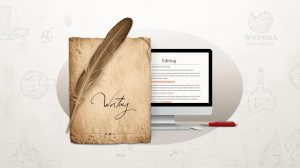Wikipedia has become the world’s go to reference point. Whether someone wants to Pick up easily about a historical event a medical term or even a Recognized living individual the first stop is usually Wikipedia. With more than 6 million English language articles and billions of page views each month it stands as one of the most Accessed and Reliable sources of information on the internet.
But what gives Wikipedia its strength openness is also what renders it insecure. Anyone with internet access can technically edit a Wikipedia page. While this ensures diverse contributions it also raises questions about accuracy fairness and ethics. When edits are motivated by personal gain hidden agendas or reputation manipulation ethical issues emerge.
This article dives deep into the ethics of Wikipedia editing focusing on transparency conflicts of interest (COI) and reputation management. It also highlights best practices the rules that govern Wikipedia and the real world consequences of biased edits.
1. Wikipedia’s Ethical Framework
Neutral Point of View (NPOV)
One of Wikipedia’s fundamental principles is Neutral Point of View (NPOV). Every article should be written fairly proportionately and without bias. For example if a public figure has achievements but also controversies both must be covered with reliable sources. Omitting negative aspects or exaggerating positive ones violates Wikipedia’s core ethics.
Verifiability and Reliable Sources
Another key policy is Verifiability. Editors must provide references to reliable third party sources. Blogs self published websites or company press releases rarely qualify. Wikipedia is not a platform for original research but for summarizing what reliable sources have already published.
Transparency and Accountability
Editors are encouraged to disclose affiliations when editing. Wikipedia’s guidelines on Conflict of Interest (COI) strongly advise against directly editing articles about yourself your company or clients you represent. Instead suggestions can be made on the article’s talk page.
2. Conflict of Interest (COI) in Wikipedia Editing
What Counts as a COI?
A Conflict of Interest (COI) occurs when an editor’s personal financial or professional connections influence the way they edit Wikipedia. This can lead to biased promotional or incomplete information. Some common examples include:
- PR agencies editing for clients
Agencies may edit a client’s page to highlight only positive achievements while quietly removing negative coverage or controversies. This creates an unbalanced picture. - Politicians and their staff
Political teams sometimes add glowing lists of accomplishments awards or promises while downplaying scandals criticism or failures making the article read more like campaign material than an encyclopedia entry. - Company executives editing their own business
Business owners or executives may write promotional-style content about their own companies focusing on marketing slogans sales growth or success stories instead of neutral sourced facts. - Academics or authors editing their own profiles
Writers professors or researchers may add exaggerated details about their publications or achievements giving themselves more visibility than their peers. - Nonprofits or activists editing cause-related pages
Organizations sometimes insert one-sided perspectives on issues shaping the article to reflect their agenda instead of presenting balanced coverage
The Temptation of Reputation Control
Because Wikipedia ranks highly on Google many individuals and brands feel pressure to “clean up” their image on the platform. But biased edits usually backfire. When caught they damage credibility far more than the original negative information ever could.
Examples of COI Missteps
- In 2012 it was revealed that Bell Pottinger a UK PR firm manipulated Wikipedia pages for clients. The exposure harmed both the clients and the firm’s reputation.
- Several political campaigns have been caught making stealth edits. The public backlash often drew more attention to the controversies than before.
3. Transparency: The Golden Rule of Editing
Why Transparency Builds Trust
Disclosing your affiliations when editing is a key ethical practice. For example a museum employee editing a page about their museum should clearly state their role. This doesn’t automatically disqualify them it simply alerts others to review their contributions carefully.
- Using Talk Pages for Proposals
If you have a COI the best approach is to propose changes on the Talk page of an article instead of editing directly. This allows independent editors to evaluate your suggestions keeping the process transparent and collaborative.
Paid Editing and Disclosure
Paid editing is not forbidden but full disclosure is mandatory. Wikipedia requires that paid editors identify themselves and follow strict guidelines. Failure to do so risks bans and damage to professional credibility.
4. Reputation Management vs. Wikipedia Ethics
The Fine Line Between Correction and Manipulation
Reputation management professionals often walk a tightrope. On one hand they want to correct false or outdated information. On the other they may be tempted to “polish” a client’s page into a glowing PR piece.
Ethical reputation management means:
- Correcting factual errors with reliable sources.
- Adding balance by including missing but verifiable information.
- Avoiding promotional or biased language.
When Reputation Management Becomes Unethical
Unethical reputation editing includes:
- Deleting well sourced criticism.
- Adding fluff content without citations.
- Flooding articles with praise from questionable references.
These tactics often trigger Wikipedia’s watchdog editors and result in reversions bans and sometimes media scandals.
5. Consequences of Biased Edits
Damage to Credibility
Being caught manipulating Wikipedia can destroy credibility. If a journalist uncovers secret edits the scandal often becomes news amplifying the very issues the person or brand tried to hide.
Account Bans and Blocks
Wikipedia has systems in place to detect suspicious editing. Editors with undisclosed COIs may face permanent bans and their edits can be rolled back within minutes.
Legal and PR Fallout
Some unethical editing cases have led to lawsuits public apologies or boycotts. Instead of protecting a reputation unethical edits can cause a reputation crisis.
6. Best Practices for Ethical Wikipedia Editing
- Disclose your connection if you are editing about yourself your company or a client.
- Rely only on reliable third party sources like newspapers journals or books.
- Avoid promotional tone stick to facts not adjectives.
- Use Talk pages for controversial or COI edits.
- Balance positives and negatives if both are covered by sources.
- Stay updated Wikipedia articles should evolve as new information becomes available.
- Engage respectfully with other editors even when they disagree.
- Think long term ethical editing ensures your page won’t get flagged deleted or publicly criticized.
7. The Role of Community Watchdogs
Wikipedia is policed by a global community of volunteers who dedicate their time and energy to ensure that the platform remains Precise and Reliable. These editors constantly monitor recent changes verify the quality of sources and flag suspicious edits that appear one-sided publicity or poorly referenced. Despite receiving no payment their motivation comes from a shared commitment to free knowledge and the preservation of Wikipedia’s credibility as one of the world’s most reliable information hubs.
For ethical editors these watchdogs should not be seen as barriers or opponents but rather as allies and partners in the editing process. By being frank about objectives maintaining civility in discussions and providing strong evidence from independent and reliable sources editors can build trust with the community. This collaboration not only strengthens the quality and neutrality of an article but also strengthens the reliability of the editor themselves showing that their work aligns with Wikipedia’s mission of unbiased knowledge.
In this way instead of clashing with the community ethical editors can contribute constructively earning respect avoiding conflicts and ensuring that the information they add stands the test of time
8. Reputation Management Beyond Wikipedia
While Wikipedia carries considerable influence it represents only one element within a broader reputation framework. An individual’s or organization’s public image is shaped not solely by a single encyclopedia entry but by the consistency and reliability of information available across multiple digital sources. Ethical contributors and reputation managers are encouraged to consider the wider digital environment which may include:
- News coverage – Independent reporting and coverage in reputable media outlets provide verifiable third-party perspectives.
- Social media presence – Active and transparent use of social platforms demonstrates engagement with a broader audience.
- Personal or corporate websites – Official websites serve as primary references for accurate and direct information.
- Professional networks such as LinkedIn – Profiles maintained on professional platforms strengthen credibility within industry and academic contexts.
When credibility is supported across these external platforms Wikipedia articles naturally achieve greater balance and reliability. This approach reduces reliance on direct intervention and helps to maintain neutrality in line with Wikipedia’s content policies particularly with respect to verifiability and conflict of interest.
Conclusion: Ethics as the Only Sustainable Strategy
Wikipedia editing is not just about words on a screen it’s about trust. The platform is powerful precisely because people believe it to be unbiased and reliable. Any attempt to manipulate it for short term gain risks long term damage.
Ethical editing grounded in transparency neutrality and respect for community rules is the only sustainable approach. For individuals brands and reputation managers the lesson is clear: play by the rules disclose your connections and let reliable sources speak louder than spin.
In the end ethical editing doesn’t just protect Wikipedia’s credibility it safeguards your own.
Disclosure: We are a dedicated content marketing agency guiding small and medium businesses through their journey to the first page of Google.

Admin at Search Marketing Experts, publishing insightful blog posts on SEO, digital marketing, and strategies to help businesses grow online.

